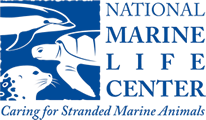June is Turtle Month
The following is a news release from MassWildlife, the Massachusetts Division of Fisheries and Wildlife. As we begin to hear about turtles crossing roadways, we thought it important to share this information.
JUNE IS TURTLE MONTH

June is the month when normally aquatic snapping, painted, spotted, red-bellied, Blanding’s and other turtles leave the relative safety of their water world and venture overland in search of nesting sites. With alarming frequency, these ancient reptiles are cut off from traditional nesting areas by an ever increasing network of roads, leaving the turtles vulnerable to high rates of road-kill.

Dubbed the “Killing Grid” by herpetologists studying the dilemma, roads take a terrible toll on female turtles that normally offset low reproductive success rates with long reproductive life spans. Cutting short adult life spans limits recruitment of young turtles in the wild and can ultimately result in the complete loss of local turtle populations. To add to the crisis, roads bring increasing development which translates into loss of nesting habitat and additional losses of turtles and turtle nests to people, and predators associated with human residential areas such as skunks, foxes and raccoons.

The solution? On a landscape scale, large tracts of habitat need to be protected to ensure the viability of Massachusetts’ native turtles. The BioMap and Living Waters, created by MassWildlife’s Natural Heritage Program, identifies such tracts and superimposes them on a statewide map creating a “greenprint” for the conservation of biodiversity. State, local and private conservation agencies and organizations use the BioMap and Living Waters maps to guide their habitat protection efforts. Currently, a major effort to update these maps is underway with completion planned for this fall. For more details go to: www.mass.gov/dfwele/dfw/nhesp/land_protection/biomap/biomap_home.htm Sustainable forest management practices on public and private lands also helps to insure that care is taken to conserve rare species during the planning and implementation of timber sales. Forestry conservation management practices for turtles and other rare species are posted on the web at: www.mass.gov/dfwele/dfw/nhesp/regulatory_review/forestry/forestry_cmp.htm.

On an individual level, citizens can assist turtles moving to and from nesting areas by helping them to cross roadways. While this Samaritan act should never be attempted if any human risk is involved, a successful road crossing can make the difference between nesting now and well into the future, versus no nesting at all. Always remember to help a turtle only when safe to do so and always move the turtle in the direction it is heading. Do not take any turtles to another location or a pond! Snappers may be safely held with one hand on the tail and another hand slid under the turtle to support its weight. Picking them up only by the tail can damage their spine. Painted, spotted and other turtle species can be safely grasped by the sides of the shell. For more useful turtle conservation tips and Turtle FAQs, go to www.mass.gov/dfwele/dfw/nhesp/conservation/herps/turtle_tips.htm. Encounters with rare state-protected turtles should be reported to MassWildlife with photo and map documentation. To report a rare turtle species visit www.mass.gov/dfwele/dfw/nhesp/species_info/report_rare_species.htm.

Editor’s P.S.: In adding links and photos to this post, I came across another helpful MassWildlife publication. Why are turtles in trouble? May I collect a wild turtle? May I keep a turtle as a pet? These and other questions are answered in “General Turtle Information and Conservation Tips.” Click on the title to download. ~kaz

